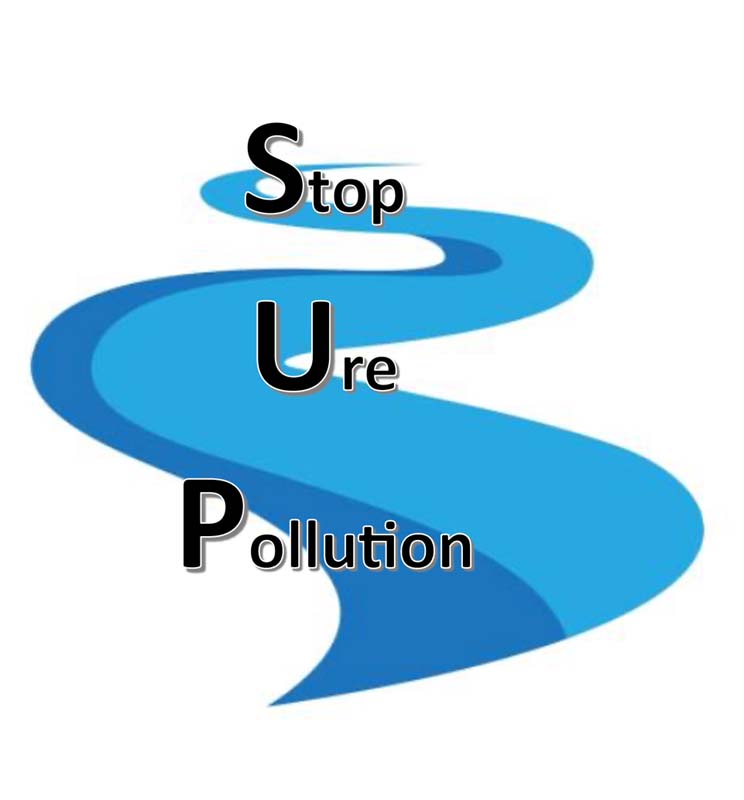
Stop Ure Pollution (SUP) was unanimously voted into existence at a meeting at Leyburn Methodist Church Hall on June 25 2024.
Over 70 attended the meeting as they were so concerned about the pollution of the River Ure, including that caused by the discharge of raw sewage.
The chair of the interim committee of the ‘Health of the River Ure’ group, Prof Richard Loukota, said the aims of SUP were: to stop the discharges of raw sewage when storm conditions were not occurring; to upgrade water treatment facilities; and to identify pollution caused by the run-off from farms.
One man asked how they could bring about change when agencies such as Defra and the Environment Agency were so under-funded and under-manned. ‘You can collect as much data as you like but when you look at Defra they don’t have the resources because of the cutbacks.’ He also wondered what could be done if polluters weren’t breaking the law.
Richard replied that there were instances when polluters were breaking the law and Ofwat has the power to impose unlimited fines. ‘They need to be pushed to do so,’ he said.
Sheila Toper from Aysgarth commented: ‘We have got to start somewhere and the more voices raised the more successful we will be.’
When asked how soon data could be collected Charlotte Simons of the Yorkshire Dales River Trust (YDRT) explained how volunteer citizen scientists could assist with sampling the river water throughout its length and from that data hot spots could be identified.‘The data collected by volunteers will be more specific and there will be far more testing along the river.’
Along the Rivers Wharfe and Nidd volunteers had tested between 30 and 40 sites she said and added: ‘That gives you a far greater picture of where the pollution might be coming in.’
She explained the YDRT will now work with the SUP volunteers to identify testing sites, hold training days for volunteers and organise a date for the first sampling by the end of August.
Since the meeting about the health of the river on April 30, sponsored by the Association of Rural Communities, over 40 people have volunteered to help with water sampling.
Some at the meeting questioned the independence of the testing of the water samples as the cost of this would be met by Yorkshire Water. Charlotte confirmed that the laboratory is an independent accredited and has been used by YDRT for both testing of samples from the Wharfe and the Nidd.
Richard pointed out that testing water samples was very expensive and it will take time for the new group to build up funds. He said he had attended Save Our Swale meetings to learn from them about setting up such a group.
Both he and Charlotte emphasised that this needed to be a collaborative effort, working with not only Yorkshire Water and the Environment Agency but also the Yorkshire Dales National Park, and other river groups to be effective. This, Richard said, included parliamentary candidates.
He introduced two parliamentary candidates: Liberal Democrat Daniel Callaghan and Kevin Foster of the Green Party, both of whom have included cleaning up rivers and seas in their aims.
SUP committee
Chair: Richard Loukota – lives in Thornton Rust, is a professor emeritus of surgery, and a keen fisherman.
Toby Milbank – lives near Bedale and is a Chartered Surveyor and Master of Land Economy. He is a former chairman of North Yorkshire committee of the Game and Wildlife Conservation Trust and is an amateur conservationist, ornithologist and fisherman.
Douglas Palethorpe – I live in Middleham. He said: ‘I’m currently a chef and maintenance man and I’ve noticed a decline in the river/fish population whilst living here.’
Luke Pearce – lives at Ulshaw, ‘I’m an Investment Manager but more importantly a fisherman who is married to a wild swimmer. I walk the dogs down the Ure twice a day.’
David Read – Lives in Redmire ,is a Scientist and Chartered Engineer, a keen Tri-Athlete/ Open water swimmer.
Mark Thompson – water modeller with Yorkshire Water
Plus Pip Pointon – the clerk, membership secretary and publicity officer. She lives in Aysgarth, is a retired journalist and overseas aid worker. Her local voluntary work includes being the administrative officer of the Association of Rural Communities which sponsored the meetings that led to the creation of SUP.